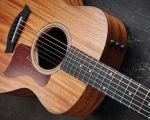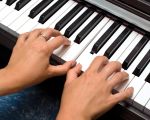Which Music Instrument Is Easiest to Learn for Beginners?
If you’re looking to learn a new instrument, you might be wondering which one is the easiest to start with. Many people are eager to dive into music but often feel overwhelmed by the vast number of instruments available. The good news is that there are several instruments that are known for being beginner-friendly, allowing you to quickly start playing and enjoy the process. In this article, I’ll explore some of the easiest instruments to learn, share tips on how to get started, and help you decide which one is right for you. Let's dive in!
1. Why Learning an Instrument Is Beneficial
Before diving into which instruments are easiest to learn, it’s important to understand why learning music in the first place is such a valuable pursuit. Playing a musical instrument can improve cognitive function, boost creativity, and provide a sense of accomplishment. It also offers a fun way to unwind and express your emotions. Whether you want to play music for personal enjoyment or aspire to become a professional musician, learning an instrument opens up a world of possibilities.
2. What Makes an Instrument "Easy" to Learn?
When we talk about an instrument being "easy" to learn, we are referring to several factors, including:
- Accessibility: How easy it is to find resources and support for learning.
- Learning Curve: How quickly a beginner can get started and start playing simple tunes.
- Physical Requirements: Some instruments require a higher level of physical dexterity than others.
- Affordability: Some instruments are more affordable, making it easier for beginners to start.
3. Top 5 Easiest Musical Instruments for Beginners
Now that we understand what makes an instrument easy to learn, let’s take a look at five popular instruments that are ideal for beginners.
1. Ukulele
The ukulele is one of the easiest stringed instruments to learn. With only four strings, it's much more manageable than a guitar. The ukulele has a smaller neck, and the strings are nylon, making it gentler on your fingers. You can start playing simple chords within just a few days of practice. It's also affordable, portable, and sounds beautiful, making it a popular choice for beginners. Many tutorials and resources are available online, so you can get started quickly.
2. Piano
The piano is another excellent choice for beginners. While it may look intimidating at first, its straightforward layout makes it easier to learn than some other instruments. Each note is clearly laid out on the keys, which simplifies the learning process. Starting with simple songs and scales, you'll be able to see progress quickly. Additionally, the piano teaches valuable music theory concepts that can be applied to other instruments. There are also many online tutorials available for beginners, helping you to start playing immediately.
3. Keyboard
For beginners who want the same benefits as learning the piano but with more flexibility, the keyboard is an ideal choice. Keyboards are typically more affordable and portable than full-size pianos. They offer a wide range of sounds and features, including built-in learning tools, making them an excellent option for new musicians. Plus, since they are similar to pianos, you can easily transition to the larger instrument later on if desired.
4. Guitar
Though the guitar can be challenging for some, it’s one of the most popular instruments and relatively easy to pick up for most people. If you start with basic chords and strumming patterns, you can begin playing songs quickly. The guitar has many resources available for learning, from books to online videos. Its versatility, popularity, and the ability to learn and play almost any genre of music make it a top choice for beginners.
5. Recorder
The recorder is a simple wind instrument that is often introduced to children in school. It is affordable, lightweight, and relatively easy to learn. With only a few basic notes and fingerings, you can begin playing simple songs quickly. Its design and functionality make it an ideal choice for beginners looking to explore wind instruments before moving on to more complex options like the flute or clarinet.
4. Choosing the Right Instrument for You
When choosing an instrument to learn, it’s important to consider what feels most comfortable and enjoyable to you. Think about the music you love and the sound that excites you the most. If you’re passionate about acoustic music and outdoor jam sessions, the ukulele or guitar may be perfect for you. If you love classical music or want to build a strong musical foundation, the piano could be a better choice.
Consider your budget as well. Some instruments, like the ukulele or recorder, are affordable and can be purchased without breaking the bank. Others, like the piano or guitar, may require a larger investment. However, if you are committed to learning, your investment will be worth it in the long run.
5. How to Get Started with Learning an Instrument
Once you've chosen an instrument, the next step is to start learning! Here are some tips to help you get started:
- Set Goals: Define what you want to accomplish and break it down into smaller, achievable goals. For example, aim to learn a specific song or master a basic scale.
- Find a Teacher: While there are plenty of online tutorials, a qualified teacher can guide you through the process, ensuring that you're learning the correct techniques and improving quickly.
- Practice Regularly: Consistency is key when learning an instrument. Set aside time each day to practice, even if it’s just for a few minutes.
- Use Resources: There are countless online resources, apps, and tutorials to help you learn your chosen instrument. Take advantage of these to enhance your skills.
6. Enjoy the Journey
Learning an instrument is a rewarding journey, and it's important to enjoy every step of the process. Don’t get discouraged if progress feels slow at times; every practice session brings you closer to your goal. Remember, the goal is to have fun and express yourself through music!
If you're still unsure which instrument to choose, or if you’re looking for the best resources to help with your learning journey, feel free to visit ToolNest for expert recommendations and tools to help you make the most of your musical endeavors.








